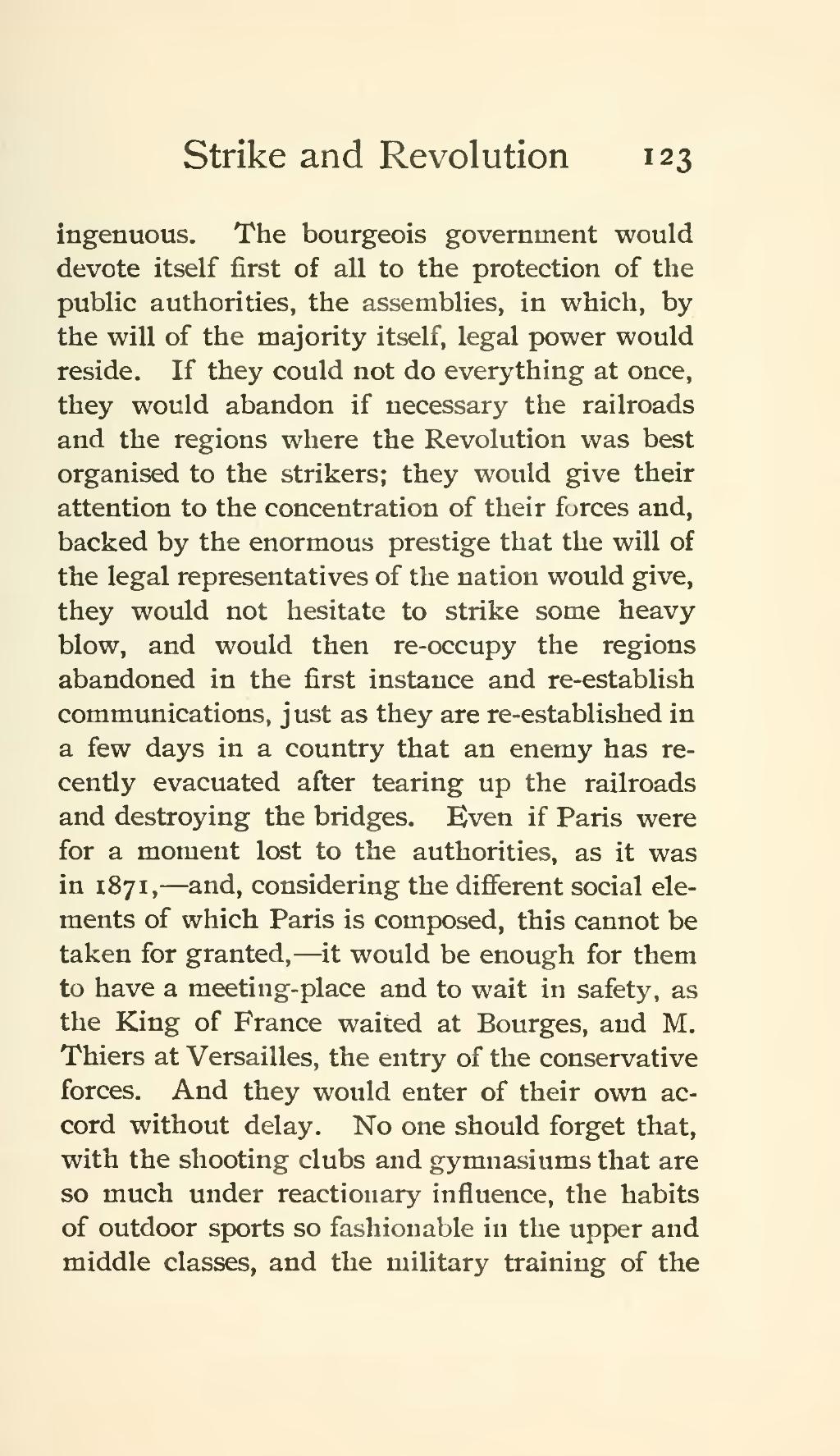ingenuous. The bourgeois government would devote itself first of all to the protection of the public authorities, the assemblies, in which, by the will of the majority itself, legal power would reside. If they could not do everything at once, they would abandon if necessary the railroads and the regions where the Revolution was best organised to the strikers; they would give their attention to the concentration of their forces and, backed by the enormous prestige that the will of the legal representatives of the nation would give, they would not hesitate to strike some heavy blow, and would then re-occupy the regions abandoned in the first instance and re-establish communications, just as they are re-established in a few days in a country that an enemy has recently evacuated after tearing up the railroads and destroying the bridges. Even if Paris were for a moment lost to the authorities, as it was in 1871,—and, considering the different social elements of which Paris is composed, this cannot be taken for granted,—it would be enough for them to have a meeting-place and to wait in safety, as the King of France waited at Bourges, and M. Thiers at Versailles, the entry of the conservative forces. And they would enter of their own accord without delay. No one should forget that, with the shooting clubs and gymnasiums that are so much under reactionary influence, the habits of outdoor sports so fashionable in the upper and middle classes, and the military training of the
